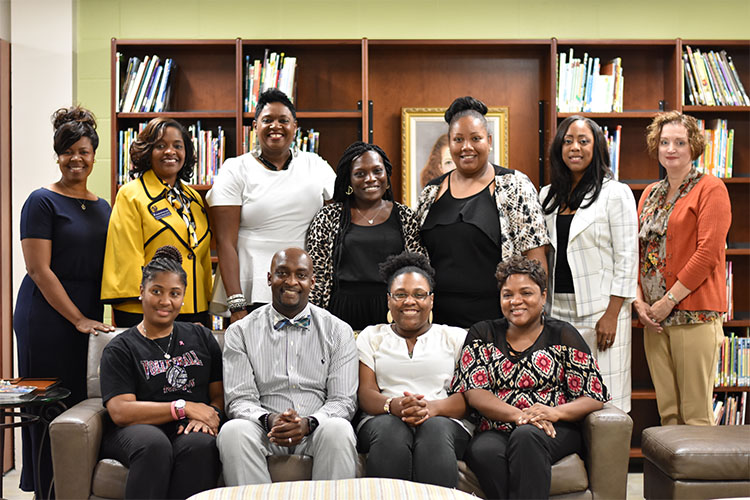
Orlean Beeson School of Education was awarded a second year of funding for its Elementary Mathematics Leadership Academy for Teachers (EMLAT). Built as a train-the-trainer model, the program prepares teachers to maximize student learning and serve as teacher-leaders in their respective school districts.
The school first launched EMLAT in 2017 after identifying the need for assistance with teacher training, specifically in mathematics. Local school districts coordinated with Samford University’s Orlean Beeson School of Education to hand-select EMLAT Fellows. EMLAT has since expanded to include teachers representing school districts throughout central Alabama.
“Because of the relationships we have already established in the community, we were honored our partners trusted that we could serve as a resource and a partner in finding a solution to some of the areas of need in elementary mathematics,” Tarsha Bluiett, associate professor and director of the M.S.E. Elementary Education program said.
EMLAT fellows enroll in five graduate-level courses focused on increasing mathematics content knowledge and pedagogy as well as leadership development. The fellows’ coursework strengthens conceptual framework in mathematics and instructional, evidenced-based strategies to improve student performance. In addition, professional development opportunities allow EMLAT fellows to hone their leadership skills.
Christina Glenn, EMLAT program coordinator and mathematics instructor, states, “I am most proud of the level of confidence our teachers gain as a result of completing the EMLAT Program. Some of our fellows apprehensively enter EMLAT because of their limited mathematics background. However, they leave EMLAT with the knowledge and leadership skills to be an impactful mathematics resource for other teachers in their school and district.”
While EMLAT represents Orlean Beeson School of Education’s mission to enrich communities, the school benefits from its connection to local teachers in the field. In its third year, Bluiett and Glenn plan to expand professional development opportunities for the fellows to include attendance and participation in the Regional National Council of Teachers of Mathematics Conference along with a coaching component that will support a smooth transition of new learnings to the classroom.
“We want our community school districts and teachers to know that we see the needs they have and we stand with them,” Bluiett said. “Ongoing teacher training is incredibly valuable and no matter where you are in your professional teaching career, it’s never too late.”
